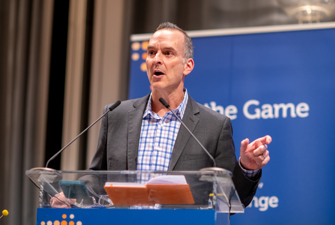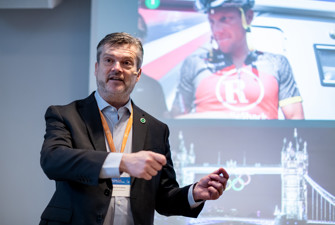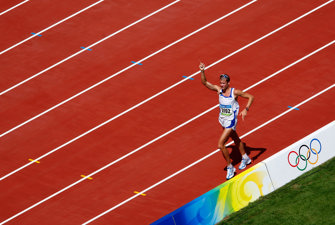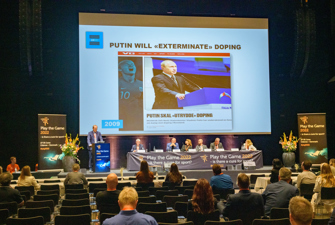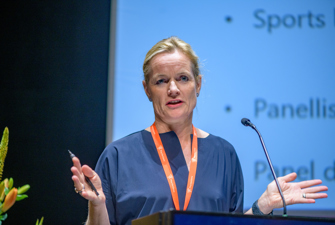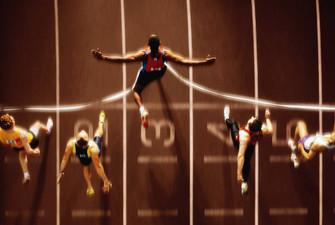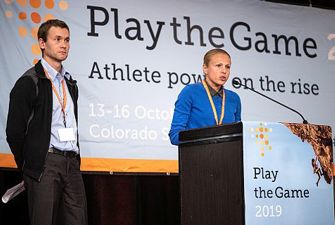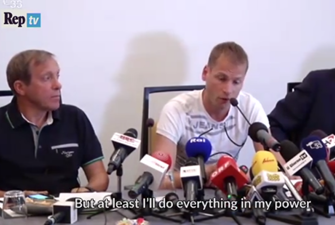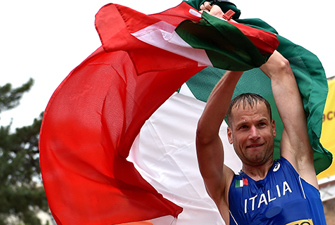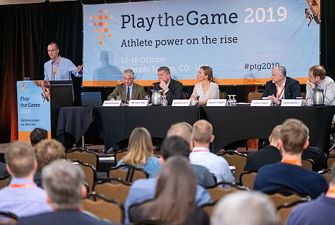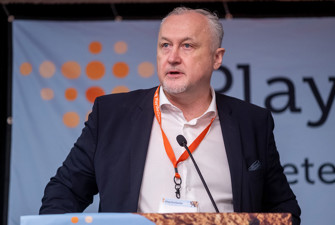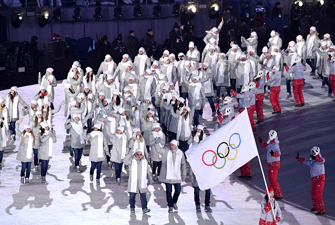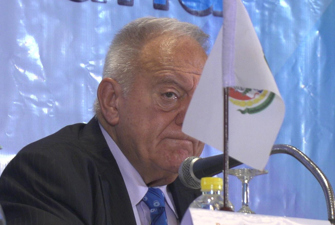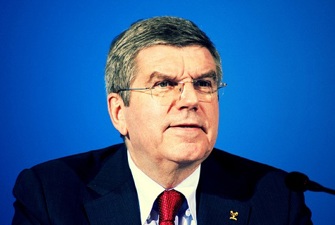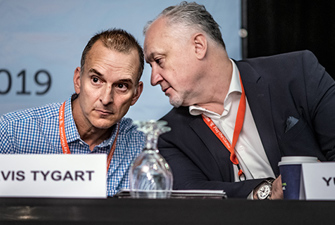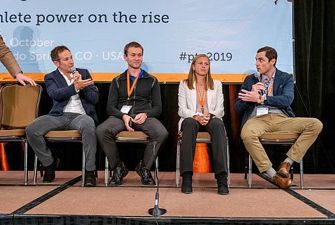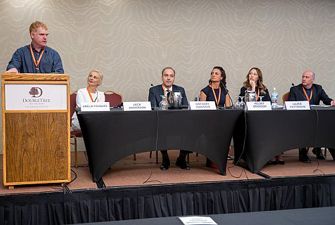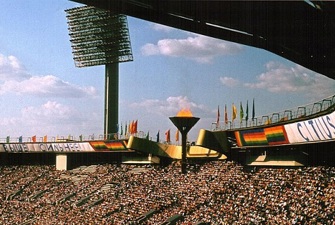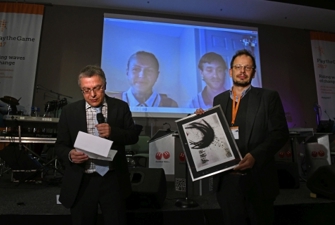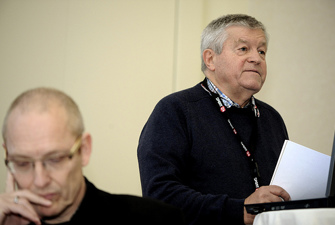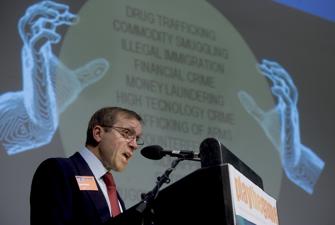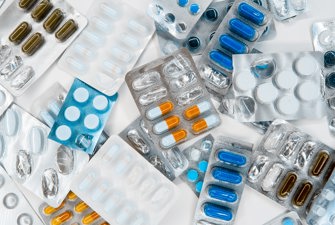BALCO - the scandal that changed the US view on doping
Elliott Almond, Olympics and Enterprise Reporter for the San Mercury News of San Francisco told conference participants that the BALCO scandal in the US could be compared to the Ben Jonson affair in Canada for its effect in forcing the nation to confront the relationship between national pride, commercialism and doping.
In the wake of the recent Balco ‘doping lab’ scandal in the USA, discussion at Play the Game turned to current trends in the fight against doping, with reference to the events in San Francisco which brought the new ‘designer steroid’ THG to world attention.
Elliott Almond, Olympics and Enterprise Reporter for the San Mercury News of San Francisco told conference participants that the Balco (an acronym for Bay Area Laboratory Cooperative) scandal could be compared to the Ben Jonson affair in Canada for its effect in forcing the nation to confront the relationship between national pride, commercialism and doping.
The Balco scandal emerged after revelations that the lab’s founder, Victor Conte, had carved a niche for himself and others by providing celebrity US athletes with performance-enhancing drugs, most prominently THG which was then unknown to anti -oping fighters.
The scandal embroiled many famous athletes including sprinters Tim Montgomery and Kelly White. However, Elliott Almond told Play the Game that it was Balco’s connection with the ‘all American’ sport of baseball which really set the pulses running in the US media.
He stated that the sight of familiar baseball players facing legal proceedings provided a wake up call to sports journalists, many of whom were finally forced to take doping seriously. As a result, he stated, fundamental questions about the nature of elite sport are now being aired.
Elliott Almond went on to ask whether sport can simply be classified as entertainment or whether it represents some further intrinsic value. Playing the devil’s advocate, he questioned whether the ban on drugs should not just be seen as just another arbitrary rule in sport, to be broken without fear of legal action.
Next to take centre stage was Travis T Tygart, Senior Managing Director at the US Anti Doping Agency (USADA) who spoke of his personal experience with the Balco investigation, which included sifting through 9,400 pages of evidence.
He urged anti-doping fighters not to forget that they are performing a valuable service by protecting the rights of ‘clean’ athletes to compete on a level playing field, and gave examples of athletes who have been cheated out of gold medals due to rivals using doping.
Mr Tygart also listed a number of professional wrestlers who have recently died of steroid abuse after competing in a ‘sport’ seen purely as entertainment. He pointed out that sporting values and the right to clean competition have now become mainstream political issues, as demonstrated by the introduction of new legislation such as the Integrity in Professional Sports Act in the USA.
He also examined the conflict between promoting and policing by governing bodies and asserted that independence is essential in anti-doping research, education, testing and results management. He claimed that the ‘new frontier’ in the fight against doping is the ability to bring a successful case based on ‘non-analytical’ positive tests such as evidence of trafficking or possession.
Anders Solheim, CEO of Anti Doping Norway, also spoke of the search to define the term ‘guilty of doping’. He spoke of the difficulties in initiating effective ‘no notice’, testing, lack of whereabouts information and the continuing problems faced by anti-doping inspectors in crossing national borders unhindered. He also asked a number of awkward questions, such as how we treat sportspeople using performance-enhancers that are fully legal in society.
Finally, Rasmus Damsgaard, doping researcher at the Copenhagen Muscle Research Centre, spoke of the chemical structure of THG, and pointed out that the substance is not difficult to synthesise and produce. However, he added that the alleged performance enhancing effects of THG have not yet been proven, as most athletes found to be using the steroid have been found to be using other illegal substances too.

Elliot Almond, Travis Tygart and Anders Solheim discussed the impact of the Balco scandal on US and international doping policy.
HIGH RESOLUTION PHOTOS AVAILABLE
Official high resolution pictures from the conference are provided by photographer Niels Nyholm.
You are free to download them and use them on your website and in printed material provided you credit Play the Game and photographer Niels Nyholm. Pictures should only be used in connection with stories related to Play the Game.
To download:
Click to enlarge the picture you want
Click on the image you want to download
Save the image on your computer



